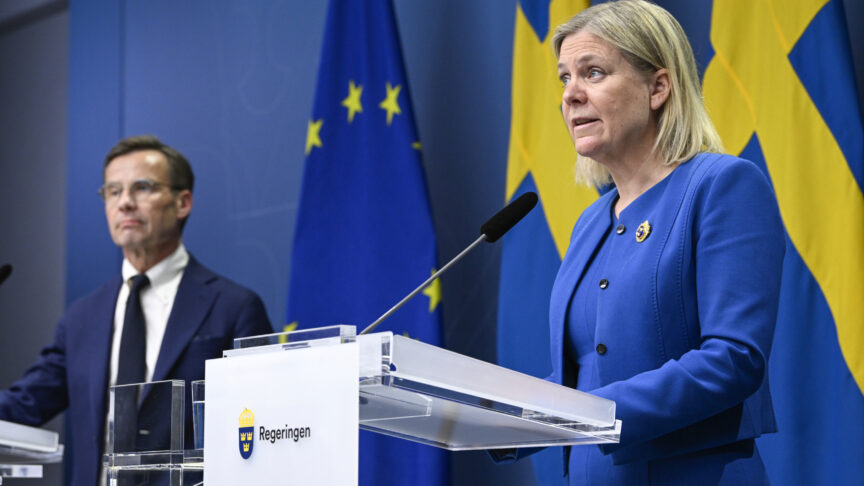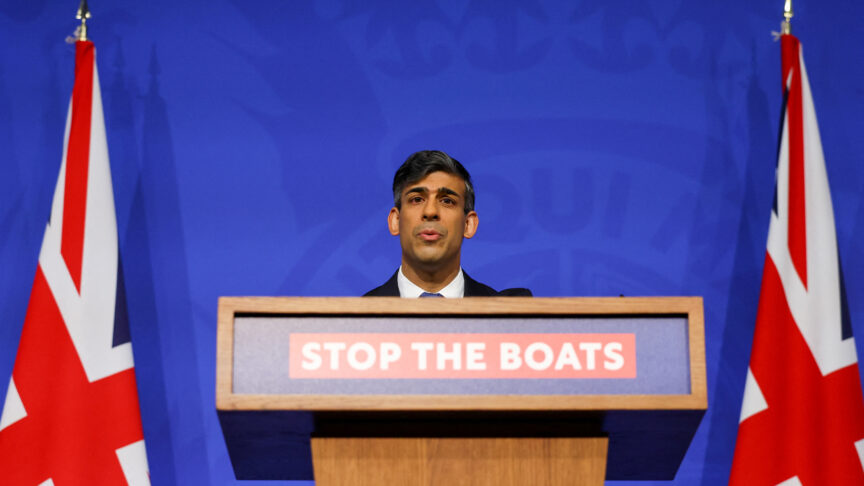Adapting ally: Sweden’s bid for NATO membership
NATO membership would be a historic step for Sweden. But it would also create new challenges in areas such as nuclear planning and missile defence.
On 8 March, more than two weeks after Russia’s full-scale invasion of Ukraine, Swedish Prime Minister Magdalena Andersson spoke out against NATO membership, arguing that it could further destabilise the security situation in Europe. Yet, just one month later, Sweden’s ruling Social Democratic Party started an internal dialogue on the country’s long-running tradition of military non-alignment. On 15 May, the party decided to support NATO membership. The day after, the government adopted the same stance.
So, what happened?
The official explanation is that Sweden’s security situation has fundamentally changed due to Russia’s brutal attack on a neighbouring country and demand that NATO refuse to admit new members. It is also important that the anti-immigration Sweden Democrats abandoned their opposition to NATO membership, as this created a parliamentary majority in support of accession.
However, Finland’s recent change of course on NATO membership might have been even more important. Influential former foreign minister Margot Wallström spoke for many Swedes when she argued on 27 March that, “if Finland joins, maybe we have to join as well.”
As Hanna Ojanen recently observed, the two countries are closely linked in security policy. A major reason why Sweden stayed out of NATO during the cold war was to reduce the risk of Soviet aggression against Finland. Now, both countries are submitting their applications hand in hand.
Even if most Swedes now support NATO membership, there is still a great deal of uncertainty about how politicians in Stockholm will act after their country joins the alliance
NATO Secretary-General Jens Stoltenberg and major NATO member states have all but guaranteed rapid accession. However, recent demands from Turkey show that the process might not be as smooth as they hope. And, even if most Swedes now support NATO membership, there is still a great deal of uncertainty about how politicians in Stockholm will act after their country joins the alliance.
Swedish and Finnish membership of NATO would leave Russia as the only state on the Baltic Sea that was not part of the alliance. Sweden would contribute significant military resources to NATO, especially through its combat aircraft and submarines. The country would likely participate in NATO integration of air and sea surveillance in this area of operations, as well as the coordination of air forces. For instance, Sweden would probably deploy Gripens early on in a conflict on the eastern edge of the Baltic Sea.
As Sweden’s domestic debate on NATO membership intensified in March, several politicians and commentators stated that, after joining the alliance, the country would follow the examples of Norway and Denmark by not accepting permanent NATO bases on its territory. The new NATO border would be near both Saint Petersburg and Russian nuclear forces on the Kola Peninsula.
When it seemed clear that the Social Democratic leadership had made up its mind, a more nuanced discussion began. Finnish President Sauli Niinistö publicly discussed the importance of Swedish territory to the depth of Finland’s defences, while various military experts spoke about the possibility of US airbases – or other forms of permanent NATO presence – in Sweden. However, the Social Democratic Party made clear that it would oppose permanent NATO bases and the stationing of nuclear weapons on Swedish territory.
On the opposite end of the spectrum, there have been calls for a joint missile shield in northern Europe, which Russia would likely perceive as a threat.
Sweden’s role in the alliance’s nuclear planning is another controversial issue – not least because it might conflict with the Social Democrats’ traditional support for nuclear disarmament. For example, although NATO members Norway and Germany participate in the Swedish-led Stockholm Initiative for nuclear disarmament, it would be politically difficult for Swedish politicians to promote the principle of no first use of nuclear weapons from within the alliance. Indeed, as Wallström recently stated, Sweden would have probably been unable to lead the Stockholm Initiative if it had been a NATO member from the start. At the same time, the Social Democratic leadership has promised to maintain its traditional line on nuclear disarmament.
Another issue is European strategic autonomy. France has welcomed Sweden’s decision to join NATO. However, in private, French officials had earlier expressed concern about how Swedish NATO membership would affect the European Union’s defence efforts. Unlike their Finnish counterparts, policymakers in Stockholm have in recent years been reluctant to improve the EU’s independent defence capabilities. This contrasts with the early years of EU security and defence policy, when then Swedish foreign minister Anna Lindh wrote about reducing European dependency on the United States and promoted Operation Artemis in the Democratic Republic of the Congo.
Although Swedish policymakers are aware that the US will probably reduce its military presence in Europe in the coming years, they are unlikely to be at the forefront of, for instance, EU planning for territorial defence. With Sweden and Finland in NATO, almost all EU member states would be members of the alliance.
There is also the issue of the development of the defence industry within the EU. The Gripen fighter is a joint project run by Sweden’s Saab and the United Kingdom’s BAE Systems. And Sweden has already struck a deal with the UK to develop a next-generation combat aircraft (a move that was unpopular in France, as French firm Dassault leads another project to develop such a capability).
NATO membership would be a historic step for Sweden. The security situation in eastern Europe is more unpredictable than it has been for decades – as is the future of Russia. In this environment, Sweden’s bid to join the alliance may be only the first of many adaptations it will need to make to protect security in the Baltic Sea region.
The European Council on Foreign Relations does not take collective positions. ECFR publications only represent the views of their individual authors.



